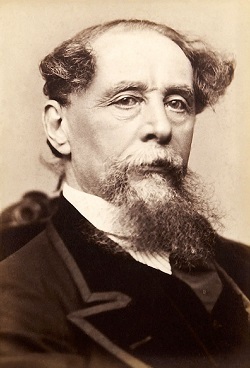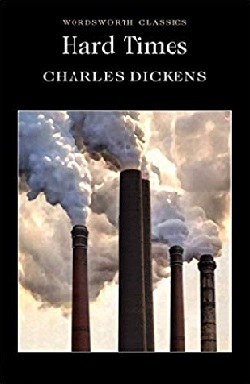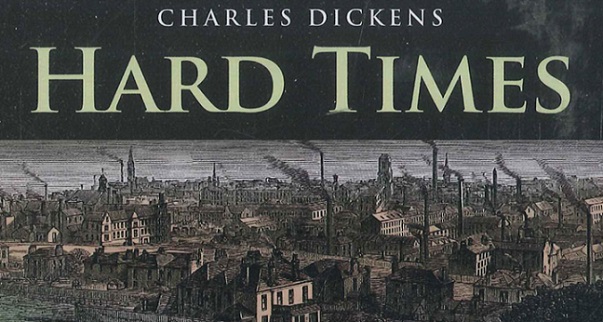The year was 1854 when Charles Dickens published what is called one of his “Dark” novels, a satire governing the an industrial town during a period of economic expansion wherein the limitations of both employers and reformers are shown through the lens of Thomas Gradgrind raising his children, Tom and Louisa, in what Goodreads describes as “a stifling and arid atmosphere of grim practicality.” Hard Times is the subject of our review this day.
 (Charles Dickens wrote the satire Hard Times during an emotionally dark period following the deaths of his father and one of his daughters in a period of two weeks).
(Charles Dickens wrote the satire Hard Times during an emotionally dark period following the deaths of his father and one of his daughters in a period of two weeks).
Hard Times is one part a story about family and another part a story about the industrial age in a place called Coketown. The book was first published in serial form in the periodical Household Words and in book form later the same year. Thomas Gradgrind, an educator, makes the colossal mistake of raising his kids to know nothing by pragmatic, that is factual, information. The lives of Louisa and Tom, the children of Thomas, lack an understanding of beauty, culture, or imagination. This upbringing leaves the kids without an understanding or sense of empathy.
 (The satire Hard Times was written by Charles Dickens).
(The satire Hard Times was written by Charles Dickens).
The pragmatic basis of this upbringing without empathy, which is part of why Hard Times is considered one of Dickens‘ dark novels, mirrors the experience industrial leaders aimed as an experience for their employees. Dickens asked readers of Hard Times to see the story of Tom and Louisa as equivalents to what is wrong with expecting workers to be strict objects of pragmatic, factual lives devoid of empathy, beauty, culture, or imagination.
 (Hard Times was written by Charles Dickens with a view of Thomas Gradgrind and the outcomes of his kids, Tom and Louisa).
(Hard Times was written by Charles Dickens with a view of Thomas Gradgrind and the outcomes of his kids, Tom and Louisa).
As an adult, Louisa married Josiah Bounderby, a vulgar banker and mill owner. Bounderby was shown to use those around him to further his own interests. In keeping the existence of his mother a secret, Bounderby perpetuates the myth that he began life as an orphan who had to struggle to survive and to establish himself. Louisa eventually leaves Bounderby and returns to her father’s house.
 (Hard Times was written by Charles Dickens as a critique of the industrial age in the England).
(Hard Times was written by Charles Dickens as a critique of the industrial age in the England).
As an adult, Tom shows himself to lack honesty, fairness or any deliberately moral guide for guiding his behavior. Tom robs Josiah Bounderby’s bank while Louisa remains associated with her husband.
 (Charles Dickens wrote Hard Times for people interested in social questions).
(Charles Dickens wrote Hard Times for people interested in social questions).
These outcomes, after having raised his children in a pragmatic worldview bereft of beauty, culture, imagination, or empathy, led their father to realize that the manner in which he raised his children has ruined their lives. The implication becomes that the industrial life asks the same of people in the employment, as well as in the outcomes for society. This line is what identifies the book Hard Times as a satire. As a successful commentary in this way, I rate Hard Times by Charles Dickens at 4.5-stars on a scale of one-to-five.
Matt – Saturday, February 29, 2020

One thought on “Charles Dickens and the book ‘Hard Times’”